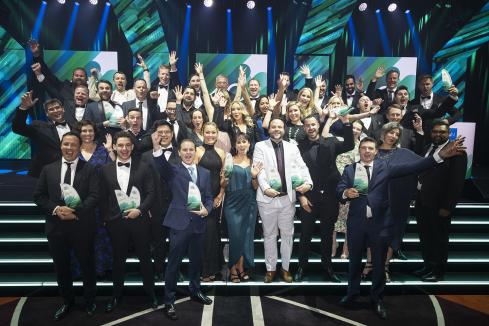

People in WA are pretty excited right now. Well, not quite as excited as the kids counting down the days until Christmas. But as excited as you can get about the economy.
The reason? The Australian Bureau of Statistics just published its latest figures, showing the WA economy (Gross State Product) grew 1.9% in the 12 months to June 2018.
It doesn’t sound like much to jump up and down about but gets more interesting when given some context.
You see, while the politicians have been reluctant to use the ‘R’ word, WA’s economy has been in a recession. Not surprisingly, the pollies appear more comfortable using the R word retrospectively, now that we’re out of it, than they were when we were in the middle of it.
The latest news - which has seen Premier Mark McGowan reportedly declare it’s a good time to buy a house in WA - follows last year’s contraction of -1.75%, and compares with national economic growth of 2.83% during the same period.
It’s a strong turnaround, but still sluggish when compared with growth across the nation, with WA’s growth ahead of only the NT at 1.7%. Although the Bankwest Curtin Economics Centre (BCEC) points out in a recent briefing note that WA’s per capita GSP is $98,725 – well above the equivalent measures for other states and $24,000 above NSW.
I need a dollar dollar…
While many are highlighting the state’s economic growth is not confined to the mining sector (hooray!), we’re kidding ourselves if we think we’re any less reliant on the industry for our future prosperity.
According to BCEC, mining accounts for more than a third of WA’s total industry Gross Value Added (GVA) and contributes $76.7bn to the WA economy. Sure, there were sectors that grew by more than mining’s 2.8% GVA (notably healthcare and social assistance at 8.8%; financial and insurance services at 5.4% and manufacturing at 3.4%) but renewed activity in the mining sector, driven by new iron ore projects and lithium mines, has undoubtedly boosted confidence and “been a key factor in the state’s return to positive economic growth”.
“No one can forecast the economy with certainty” – JPMorgan CEO Jamie Dimon
Household consumption expenditure is necessary to support economic growth and on that front, there are signs that we may still have some way to go.
While household consumption growth averaged 4.1% in WA between June 2009 and 2013, according to BCEC, in the year to June 2018 it grew at just 1.6%.
Recent research by CoreData for The West Australian and WA Super suggests households are still under a reasonable degree of money stress, with more than two in five worrying about money at least weekly.
Further, the survey of more than 1600 West Aussies found more than one in three do not have any personal savings or spending money (other than a credit card) they can regularly count on.
In its quarterly statement on monetary policy, the Reserve Bank of Australia said the outlook for household consumption growth in Australia “continues to represent a significant uncertainty for the forecasts”.
While household spending is expected to continue to grow at around 3% a year, the RBA admits there is uncertainty about the outlook for household income growth in an environment of high debt – and that we can’t be sure how households will respond to significant housing price declines.
Just as low wage and population growth impacts household disposable income and spending, low house prices impact household wealth. And although falling house prices may present more of a threat on the east coast than in WA, wage and population growth in the state remain weak.
The green shoots in the economy are welcome, as is the uptick in mining activity. But real progress will come with a more diversified economy – one that avoids the talent drain that comes with boom-bust cyclicality and limits its exposure to global economic and political risks – and substantial growth in household spending.
~~~~~~~~~~~~~~~~~~~~~
Kristen is a highly motivated and passionate researcher with eight years' experience in the market research industry. As Director of CoreData Western Australia, she is based in our Perth office and responsible for business development, client relationship management and project management across a diverse client base.
Kristen has a deep understanding of the financial services industry, strong client engagement skills and is a regular media commentator. Her Perth client base spans aged care, banks, super funds, not-for-profits and utilities.
Before relocating to Perth to establish the WA business, Kristen was Head of Financial Services in CoreData’s Sydney office. Prior to joining CoreData in 2009, she was a financial journalist for seven years.
Kristen is a graduate of the Australian Institute of Company Directors, has a Master of Business Administration (Exec) from the Australian Graduate School of Management, a Bachelor of Arts, Journalism (with Distinction) from Curtin University of Technology and is a fully accredited member of the Australian Market and Social Research Society of Australia.
Follow Kristen on Linkedin: www.linkedin.com/in/kristenturnbullcoredata or contact CoreData WA for any market research needs.










